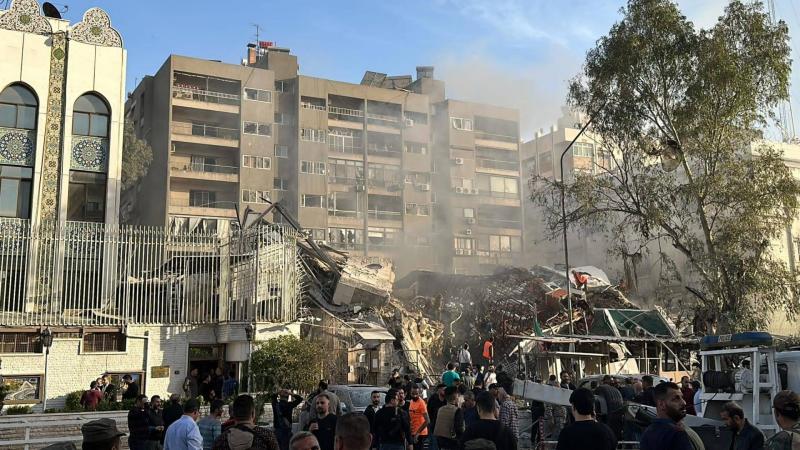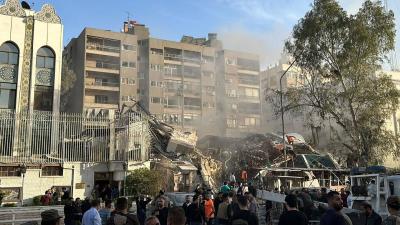For years, the conflict between the two adversaries has taken place within the framework of what is known as the "shadow war," involving Iran-backed factions in the region from Iraq to Syria, Lebanon, and Yemen, where the Houthis are located. However, the targeting of the consulate marked a painful blow to Tehran, as it was the first attack on its consulates or embassies, which analysts described as a significant moral setback.
In this context, Ali Faezeh, the head of the Iranian section at the International Crisis Group, stated that Iran and Israel have been engaged in what has come to be called a shadow war for years. However, the consulate strike demonstrated that this terminology is now inaccurate, especially with escalating tensions on multiple fronts in the region. He clarified in a series of tweets on his X platform account that Israel had previously targeted Revolutionary Guard personnel in Syria over the past years, but those strikes were exceptions. In contrast, the recent strike carries immense significance, both for the targeted site and the elements that were killed.
Iran's options for retaliation are broad, and he expressed that Tehran is in an unenviable position. He noted that failing to respond would be interpreted as weakness, leading to further Israeli strikes. Conversely, a direct or indirect response against Israeli or American interests could yield the same result. He warned that targeting a diplomatic facility is akin to Iran being attacked on its own territory. He further stated in comments to the New York Times that failure to retaliate could undermine Iran’s military presence in Syria; however, if they choose to respond, they might fall into a trap that Israel has allegedly set for them to provoke a direct war.
Charles Lister, director of the Syria and Counter-Terrorism Programs at the Middle East Institute in Washington, tweeted that the Israeli attack on Damascus yesterday is a significant development and a serious escalation. Meanwhile, Beiman Seyed Taheri, a conservative analyst close to the Iranian government, remarked that the Damascus strike has shaken the Iranians who fear the government’s approach to confrontation with Israel has failed. He said, "Our national security has been violated... Iran must respond so that Israel does not attack us in our own territory." He added, "If they do not want to retaliate, they should reconsider and ease their regional policies and military presence in the area," according to the New York Times.
It should be noted that the behind-the-scenes conflict, or what is known as the Iranian-Israeli shadow war, has been ongoing for years, with each side targeting the other in various ways and occasions. Israel has carried out several assassinations in Syria and even within Iran itself, in addition to disruption and cyber operations. Similarly, Tehran has executed multiple cyberattacks within Israel and has urged its regional "arms," as many experts and analysts describe them, to strike Israeli interests and also American bases.




